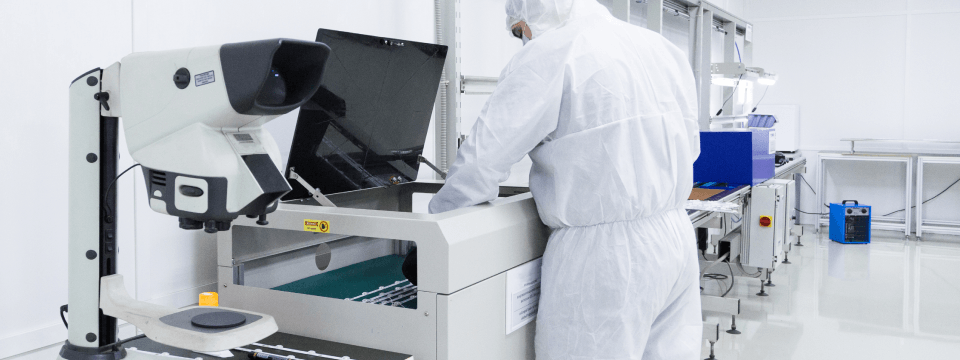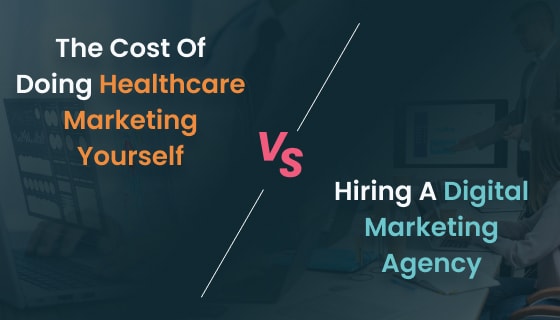Introduction
The tide of digital transformation has swept the healthcare sector. Further, opening up innovative marketing channels for medical equipment manufacturers. This article shows how effectively implemented PPC campaigns can be a game-changer for medical equipment manufacturers.
Power of Pay-Per-Click (PPC) Advertising in Medical Equipment Sales
PPC ads are one of the online advertising tools where you only pay when someone clicks on your ad. Furthermore, they appear on top of the search engine results when someone searches for a keyword related to your product.
Who is your ideal buyer?
Understanding the target audience is the first step towards creating effective PPC campaigns.
Identifying Your Ideal Customers and Their Needs
Your ideal customers will be the ones who need and want your medical tools. In Addition, they could be hospitals, clinics, or procurement professionals looking for the best quality and price.
One has to find out what your ideal customers need and want; you can do market research and customer surveys. You can also study your competitors and learn from their successes and failures.
Once you know what your ideal customers are looking for, you can create a list of keywords that match their search queries and use them in your PPC ads.
Crafting Buyer Personas for Effective PPC Campaigns
Creating detailed client profiles, including job positions, purchasing capacities, and worries, helps manufacturers improve their advertising efforts. Tailoring advertising messaging to the target audience may boost campaign relevance and engagement.
How to Set Up a Successful PPC Campaign
PPC campaigns need meticulous preparation and sound decision-making. Pay-per-click (PPC) platforms, campaign goals, income distribution, and developing attractive ad text with engaging imagery are all factors that manufacturers must consider.
Selecting the Right PPC Platforms (Google Ads, Bing Ads, etc.)
The online activity of the target audience determines platform selection. Marketing campaigns are more effective when they fit the target audience’s tastes, regardless of platform (Google, Bing, etc.).
Defining Campaign Objectives and Budget Allocation
How well the overall strategy is intended to increase brand awareness, website traffic, or sales, the campaign objectives will be crystal clear. Budget allocation by these objectives optimizes the effectiveness of the campaign.
Creating Compelling Ad Copy and Engaging Visuals
The combination of persuasive advertising copy that emphasizes special attributes with captivating visuals raises user attention and click-through rates. Concise and unambiguous calls to action bolster ad effectiveness.
How to Choose Relevant Keywords
The selection of relevant keywords is important to the success of pay-per-click (PPC) campaigns, which requires extensive keyword research and targeting.
Conducting Keyword Research for Medical Equipment Manufacturers
Utilizing keyword research tools can assist in the identification of relevant, high-volume keywords in the healthcare product manufacturing industry. Recognizing the terms consumers use improves your site’s compatibility with their search intent.
Using Long-tail Keywords and Negative Keywords to Refine Targeting
Long-tail keywords permit precise targeting and can be less expensive due to reduced competition. Applying negative keywords aids in excluding irrelevant search terms, thereby conserving the budget and preventing click waste.
Designing Landing Pages that Convert
It is crucial to optimize landing pages for user experience and conversion, as they play a pivotal role in prospective purchasers’ conversion voyage.
Optimizing Landing Page Experience for Users
Strengthen conversion rates with user-friendly landing pages that provide helpful data about the featured medical supplies and unambiguous calls to action. A streamlined layout, intuitive navigation, and rapid page launch times improve the client’s experience.
A/B Testing for Landing Page Performance Improvement
Conducting A/B experiments on various elements such as headlines, calls-to-action (CTAs), and images enables manufacturers to perpetually improve touchdown page performance.
Leverage Geo-targeting and Ad Scheduling
Utilizing advanced features such as Geo-targeting and Ad scheduling can improve the efficacy of pay-per-click (PPC) campaigns.
Maximizing Reach with Location-Based Targeting
Geo-targeting enables manufacturers to serve advertisements in certain areas where their target audience is concentrated, thereby enhancing the relevance and effectiveness of advertisements.
Utilizing Ad Scheduling for Optimal Campaign Performance
Ad scheduling enables the display of advertisements at periods when potential consumers are most likely to engage, thereby enhancing campaign efficacy and reducing wasteful ad spending.
Remarketing Strategies for Medical Equipment Sales
Remarketing can ensure that your brand stays at the top of the mind of potential buyers.
Targeting Previous Website Visitors with Relevant Ads
Medical device manufacturers might use re-advertising to attract new consumers and enhance conversions. Manufacturers can boost conversion rates and preserve brand recognition through personalizing adverts for prior website visitors. And! the adjusting content for remarketing audiences.
Nonetheless, tracking and evaluating PPC success is critical for verifying the usefulness of these techniques and tweaking campaigns for better outcomes.
Customizing Messages for Remarketing Audiences
Create customized ad messages that address your remarketing audience’s unique needs and interests. This shall improve conversion chances.
Tracking and Measuring PPC Performance
To ensure the effectiveness of your PPC campaigns. Tracking performance and making necessary adjustments are crucial.
Implementing Conversion Tracking and Analytics
They must be constantly monitored and evaluated to get the most out of pay-per-click (PPC) programs. Installing conversion monitoring and analytics solutions, such as Google Analytics.
This enables manufacturers to measure conversions and understand how people engage with their ads and landing sites. This data can be used to calculate Return on Investment (ROI) and make informed decisions regarding future advertising initiatives.
Interpreting Key Metrics for Continuous Improvement
Regularly, manufacturers might find areas for development by reading important PPC indicators like click-through rates (CTR), cost per click (CPC), conversion rate, and relevance score.
Advertisers then can enhance their PPC tactics by determining which aspects of their advertisements are working effectively and which need to get improved.
Budget Management and Cost Optimization
Effective budget management is vital. Mainly to ensure your PPC campaigns remain profitable.
Setting Realistic Budgets for Your PPC Campaigns
Effective budget management is critical for ensuring that pay-per-click (PPC) campaigns remain profitable and provide the required outcomes. Establishing budgets that correspond with the entire marketing budget and the campaign’s objectives is a critical aspect.
Monitoring advertising expenses and revising ideas regularly helps manufacturers get the best potential outcomes within their budget limits.
Tips for Reducing Costs without Compromising Results
Medical device makers may use a variety of ways to save costs without sacrificing functionality. Negative keywords that remove irrelevant search phrases improve ad placement and save money on wasteful views.
Ad targeting may be fine-tuned by utilizing the performance of multiple keywords and advertisements to increase cost-effectiveness. Increasing the quality score through enhancing ad relevance and landing page experience may lead to higher ad ranks at a lower cost.
Adapting to Industry Trends and Competition
Keeping your PPC strategy updated with industry developments and competition dynamics might help you stay forward.
Keeping Abreast of healthcare Industry Developments
PPC tactics must be adapted to PPC trends and industry dynamics to keep ahead of the competition in the continually expanding healthcare market.
Keeping up-to-date with healthcare innovations and altering PPC strategies appropriately ensures medical equipment makers’ continuous relevance and competitiveness.
Monitoring Competitor Strategies and Adjusting Your Approach
Monitoring your rivals’ pay-per-click (PPC) efforts may give you useful information about their most successful keywords, ad text, and landing sites. Duplicating their tactics, on the other hand, may not provide the greatest outcomes.
Instead, manufacturers should utilize this data to create a distinct and extraordinary PPC approach that distinguishes them from competitors.
Integrating PPC with Other Marketing Channels
PPC works best when combined with other marketing platforms.
Leveraging PPC to Support Your Content Marketing Efforts
Manufacturers may add value to their medical equipment marketing by employing pay-per-click (PPC) adverts to drive people to high-quality content for medical equipment sales such as blog posts or eBooks. This integration boosts the brand’s authority and trustworthiness.
Synergizing PPC with Email Marketing and Social Media
Use PPC to increase the size of your email list or generate visitors to your social media platforms. PPC provides many touchpoints for potential clients, which assists in nurturing them towards a transaction.
Compliance and Ethical Considerations
Compliance with guidelines and ethical issues is critical in healthcare advertising.
Adhering to Healthcare Advertising Guidelines
Guarantee that advertisements adhere to the platform’s healthcare advertising guidelines. Also, applicable legal regulations assist manufacturers mainly in maintaining an upbeat brand image and establishing consumer trust.
Balancing Ethical Marketing and Sales Objectives
Striking a balance between selling aims and ethical standards enhances customer loyalty and trust. Sincere and forthright advertising techniques echo more strongly with prospective consumers and add to a brand’s reputation.
Conclusion
Remember, consistency in monitoring and optimization are the keys to a successful PPC campaign. Yet the rule of thumb remains – all your advertising, ethical, and sales practices must strike a balance. Doing so creates a reliable brand image, becoming a trusted choice in the competitive market.












